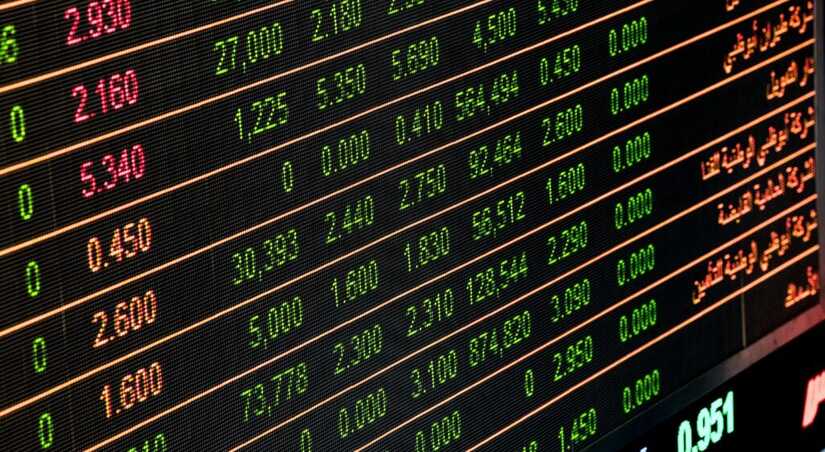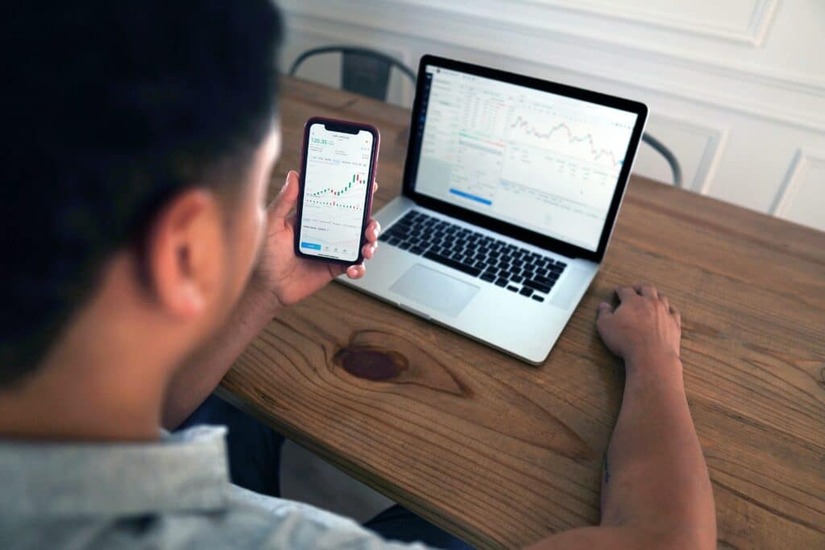Best money market funds for January 2023
Discover what money market fund is best for you and consider overseas investment vehicles for their complementary long-term benefits.
If you want to invest as an expat or high-net-worth individual, which is what I specialize in, you can email me (advice@adamfayed.com) or use WhatsApp (+44-7393-450-837).
Introduction
If you’re looking for an investment that has safe, liquid features and higher yields than traditional savings accounts, investing in money market funds may be what you need.
Money market funds are typically highly liquid and safe investments. They are fully backed by their issuing institution and sell and redeem the shares at a price equivalent to the net asset value (NAV), which is calculated daily.
Often, managers of money market funds always aim to keep their NAV fixed at $1 per share using special pricing and valuation conventions, with only a few exceptions depending on the current market value of the securities in their portfolios.
If you are interested in investing in a money market fund, we have prepared a list of the best performing ones below, as well as some information you might need!
Fidelity Money Market Fund (SPRXX)
Like all money market funds, SPRXX strives for a constant $1 share price, dividend potential, and a combination of liquidity. As of the end of 2022, it holds in its portfolio US Treasury Repurchase Agreements (45.41%), US Certificates of Deposit (12.58%), and Financial Company Commercial Paper (25.51%).
The fund aims to achieve the highest level of current income possible while also maintaining capital and liquidity. SPRXX has been around since 1989, currently has total net assets of $62 billion, and a seven-day SEC yield of 4.14%. It also has no there are no minimum investment restrictions.
Vanguard Federal Money Market Fund (VMFXX)
VMFXX is a well-known money market fund with assets under management of more than $223 billion. Since its inception in 1981, this fund has endured numerous market declines and downturns. VMFXX currently has an expense ratio of 0.11% and pays a seven-day SEC yield of 4.23%. A $3,000 minimum investment is needed for the fund.
Vanguard Federal Money Market Fund’s investment objective is to seek to provide current income while maintaining liquidity and a stable share price of $1. The fund invests at least 99.5% of its total assets in cash, U.S. government securities, and/or repurchase agreements that are collateralized solely by U.S. government securities or cash (collectively, government securities). As such it is considered one of the most conservative investment options offered by Vanguard.
Invesco Government Money Market Fund (INAXX)
As with all other money market funds, INAXX aims to offer current income while maintaining capital and liquidity. As such least 99.5% of the total assets of the Invesco Government Money Market Fund are held in cash, government securities, and repurchase agreements with cash or government securities as collateral. Additionally, buyback agreements that are secured by government securities account for at least 80% of the company’s net assets.
The seven-day SEC yield paid by INAXX as of time of writing is 3.69%, with total assets for the fund reaching about $3.8 billion. The fund requires a $1,000 minimum initial deposit and $50 for each additional purchase.
BlackRock Summit Cash Reserve Fund (MSAXX)
The Summit Cash Reserves Fund offered by BlackRock keeps at least 99.5% of its total assets in U.S. currency in cash. Treasury notes and other obligations that the US government has issued or guaranteed. With some exceptions, the fund only invests in assets with a 397-day or shorter term, and it keeps a dollar-weighted average maturity of 60 days or shorter.
The fund currently has an expense ratio of 0.42% and offers a seven-day SEC yield of 3.73%. However, the required minimum investment is only $1,000.
JPMorgan Prime Money Market Fund (VMVXX)
VMVXX makes investments in high-quality, short-term debt instruments with low credit risk, such as securities issued by the U.S. government and its agencies; floating rate and variable rate demand notes of U.S. and foreign corporations; commercial paper, which is rated A1 by Standard & Poor’s and P1 by Moody’s Investor Services; certificates of deposit and time deposits; asset-backed securities; and repurchase agreements.
VMVXX also takes ESG, or environmental, social, and governance, considerations into account while selecting its holdings. The fund has attracted $66.9 billion in total assets under management since its launch in 1993. VMVXX currently has a $1,000 minimum investment requirement, with $50 per subsequent investment, pays a seven-day SEC yield of 4.25%, and carries a 0.5% expense ratio.

What is a money market fund?
A money market fund is a type of mutual fund that puts money into short-term, highly liquid securities. These instruments include cash, cash equivalents, and debt-based securities with a short maturity that have a good credit rating (such as U.S. Treasuries).
Money market funds aim to provide investors with great liquidity and very little risk. Money market mutual funds are another name for money market funds.
Investing in money market funds, depending on the portfolio, can produce taxable or tax-free income with limited capital growth.
As such, money market funds shouldn’t be utilized as long-term investments; instead, they should be used as a temporary holding account before making a planned cash outlay or investing elsewhere.
It is important to note that a money market fund and a money market account are not the same thing, despite their names being similar (MMA).
An investment that is supported by an investment fund firm and other financial institutions is known as a money market fund. As a result, there is no guarantee of principal.
Financial organizations offer money market accounts, and they are insured by the Federal Deposit Insurance Corporation.
The other advantage to investing in money market funds is that they are very liquid, meaning you can withdraw your funds whenever you want without much hassle. They tend to be less volatile than other investments such as stocks.
Money market mutual funds can be classified as government, prime, treasury, or tax-exempt funds depending on the sort of investments they make.
Government funds are particularly safe because they are required to invest 95.5% of their assets in government securities and repurchase agreements that are fully collateralized by cash or government securities.
Floating-rate debt and commercial paper of non-Treasury assets, such as those issued by corporations, U.S. government agencies, and government-sponsored enterprises, are the types of investments made by prime money funds.
Like the name suggests, a treasury fund invests in standard U.S. Treasury-issued debt securities, such as Treasury bills, Treasury bonds, and Treasury notes.
Earnings from a tax-exempt money market fund are excluded from federal income tax in the United States. A money fund that is exempt from federal income taxes may also be exempt from state income taxes, depending on the specific securities it invests in. These money market funds usually hold municipal bonds and other debt securities.
You can start investing in money market funds through a broker or directly with an institution like Fidelity or Schwab. Many people do so exclusively through brokers because they’re convenient ways of managing your portfolio without having to research every single stock yourself.
Be sure to consult with a financial advisor to find the best option for you and your financial needs.
What are the benefits and drawbacks when investing in money market funds?
Although money market funds provide safety, liquidity and higher yields than regular bank accounts, their returns aren’t as strong as those from other types of investments.
It is also important to note that although money market funds do offer a safe investment option with minimal risk, there are always risks associated with investments.
Money market accounts are a great place to invest your money, but they come with limitations. If you want to trade higher returns for safety, they are a great option. But if you want to earn more, you might want to explore other options.
Similar investing options to money market funds include bank money market accounts, ultrashort bond funds, and enhanced cash funds. These investment options might seek bigger returns while also investing in a wider range of assets.
Because they give investors a secure means of making investments in highly liquid, debt-based securities, money market funds are classified as low-risk, low-return investments in the world of mutual fund-like products.
Investors find investing in money market funds to be appealing since there are no burdens attached—neither entry nor exit fees. Many funds also offer tax-advantaged profits to investors by purchasing municipal securities that are free from federal income tax (and in some instances at the state level, too).
It’s vital to remember that while money market deposit accounts, online savings accounts, and certificates of deposit are all protected by the FDIC’s federal deposit insurance, money market funds are not.
If you want more security, it might be better to keep your cash in a savings account. The most secure and liquid way to save cash is in a savings account with a financial institution.
This is due to the fact that savings account deposits are up to $250,000 FDIC insured, and money is always available at the counter or ATM.
But, if you can tolerate a tiny amount of risk, money market funds are likewise relatively safe given that they invest in cash and assets backed by the US government, such as Treasury bills, Treasury notes, and repurchase agreements based on government-supported liabilities.
Although some funds charge redemption fees for liquidity and have restrictions on redemption periods, both accounts have very high liquidity.
Because money market fund yields are generally higher than those offered by bank accounts, they can be an alternative when you need quick access to cash.
If you have excess cash that you don’t expect to need for the next few years, investing it in a money market fund may allow you to earn more than you would if it sat in a savings account.
While there are some disadvantages to investing in money markets, they’re still effective ways of building wealth and setting aside cash for emergencies.
Money market funds are a popular way to invest in the short term. They’re considered safe, liquid investments that pay more than savings accounts and less than stocks. They’re also not as risky as other investments, which makes them an ideal choice for those who want to build their savings without taking on too much risk.
Money market funds offer tax advantages and liquidity (ability to buy or sell quickly) similar to traditional bank accounts but with lower management fees.
These benefits make investing in money market funds very attractive for those who want something simple but effective at building wealth over time without having too many moving parts to worry about when making big decisions like investing or paying bills each month.
Money market funds are safe and liquid investments that can be used to save money or make purchases. They provide investors with higher yields than regular bank accounts, which makes them an attractive option for those who want quick access to cash without paying a high interest rate on their deposits.
Money market funds are now one of the fundamental supports of the modern capital markets. They provide a diversified, expertly managed portfolio with high daily liquidity for clients.
Money market funds are popular among investors as a safe haven for their cash while they decide on other investments or to cover any immediate liquidity needs.
When looking at a money market fund’s performance, the interest rates that are available on the various assets that make up its portfolio are the most important factors. Analyzing historical data will give you ample information about how money market returns have performed.

In the past in a prolonged low-rate environment, money market funds offered insignificant yields. Nowadays, seven-day yield figures have been revitalized as interest rates have increased and inflation is rising even faster.
It’s crucial to pay attention to how your investment results are impacted in an inflationary economy. If you need to store money for a relatively short period of time, a money market fund is a fantastic choice.
However, if you’re keeping money for a big purchase like a house, you need be mindful of the effects of inflation. Always remember to talk about your plans with a financial counselor.
Pained by financial indecision? Want to invest with Adam?

Adam is an internationally recognised author on financial matters with over 830million answer views on Quora, a widely sold book on Amazon, and a contributor on Forbes.



